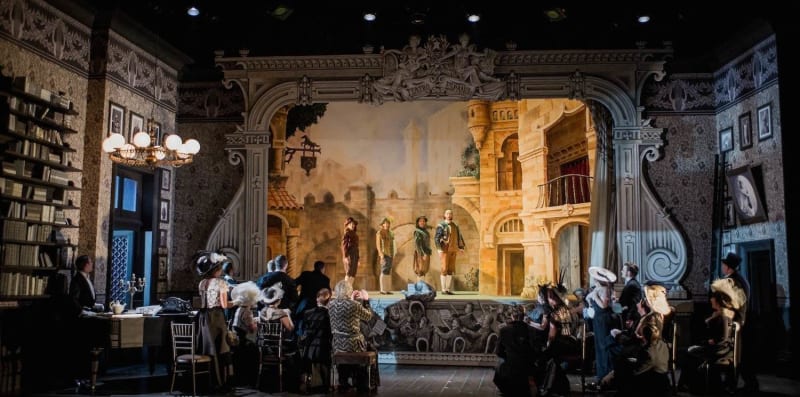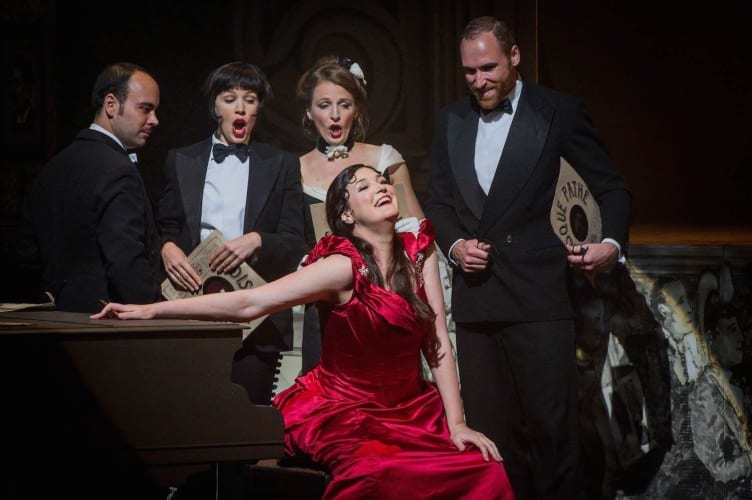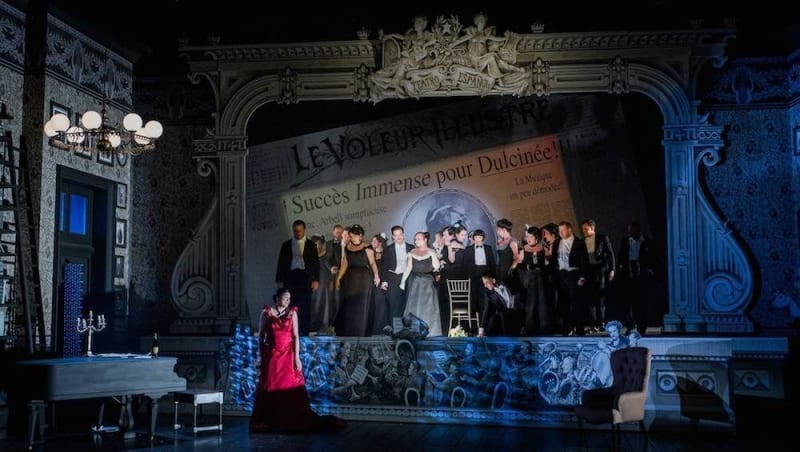Much has been made by the critics of a device used by Grange Park Opera in its production of Massenet's Don Quichotte this summer.
In truth more than a device, the concept for this production sees the composer and protagonist conflated, as Massenet takes to the stage-upon-a-stage to perform his eponymous hero after the lead actor fails to turn up.
In theory, this is a marvellously neat conceit; parallels between Massenet and Quichotte and between his muse Lucy Arbell and Quichotte's La Belle Dulcinee are well-rehearsed. And Cervantes' original was similarly multi-layered, Cervantes' narrator editing a Spanish translation of an originally Moorish text.
But in practice the result—at least in the first half—can be a little confusing unless the audience has done its homework. With the story's artifice fully exposed, the singers seem unable to throw themselves fully into their Quichotte characters, making it difficult for the them to involve the audience emotionally.
But where things are confusing they are also funny, and the added layer of dramatic irony created by the real Massenet's inclusion in the proceedings enriches the opera's comedy. The concept also brings alive long orchestral sections of the score and its execution is visually arresting.
Nowhere is this more so than just before the close of the first half, when the famous windmill is fused with a giant metronome, taunting both Quichotte and Cervantes. In a fantastically surreal turn, a grotesque giant-headed version of Stravinsky emerges from below to fight Massenet—a symbol of his struggle against modernism. This frenetic, crazed flurry lifts Massenet's rather fragmented and musically unengaging first half.
Having been so spoiled by Charles Edwards's intricate and comic set in the first half, it was a little disappointing to find no change during the interval. But this was offset by the musical gear change in the second half.
Now Clive Bayley's strong and yet vulnerable bass was allowed to shine, first in his duet with an earthy Sara Fulgoni and later in his final heartbreaking aria. The pathos Bayley evokes in his physical performance, frail in movements but strong in voice, is beautiful to watch.
David Stout's Sancho Panzo is vocally strong and visually exasperated by his master's misadventures.
In the end, one can't help feeling that, by employing a metatheatrical device, this production becomes everything it's trying to show Massenet as hating: modernism. Perhaps more credit should be given to the traditionalist though; he might have enjoyed the added layer to his work.
Belle Lupton is on the board of Grange Park Opera's 'Meteors' (under 30s). But here she writes as a journalist and therefore objectively.


